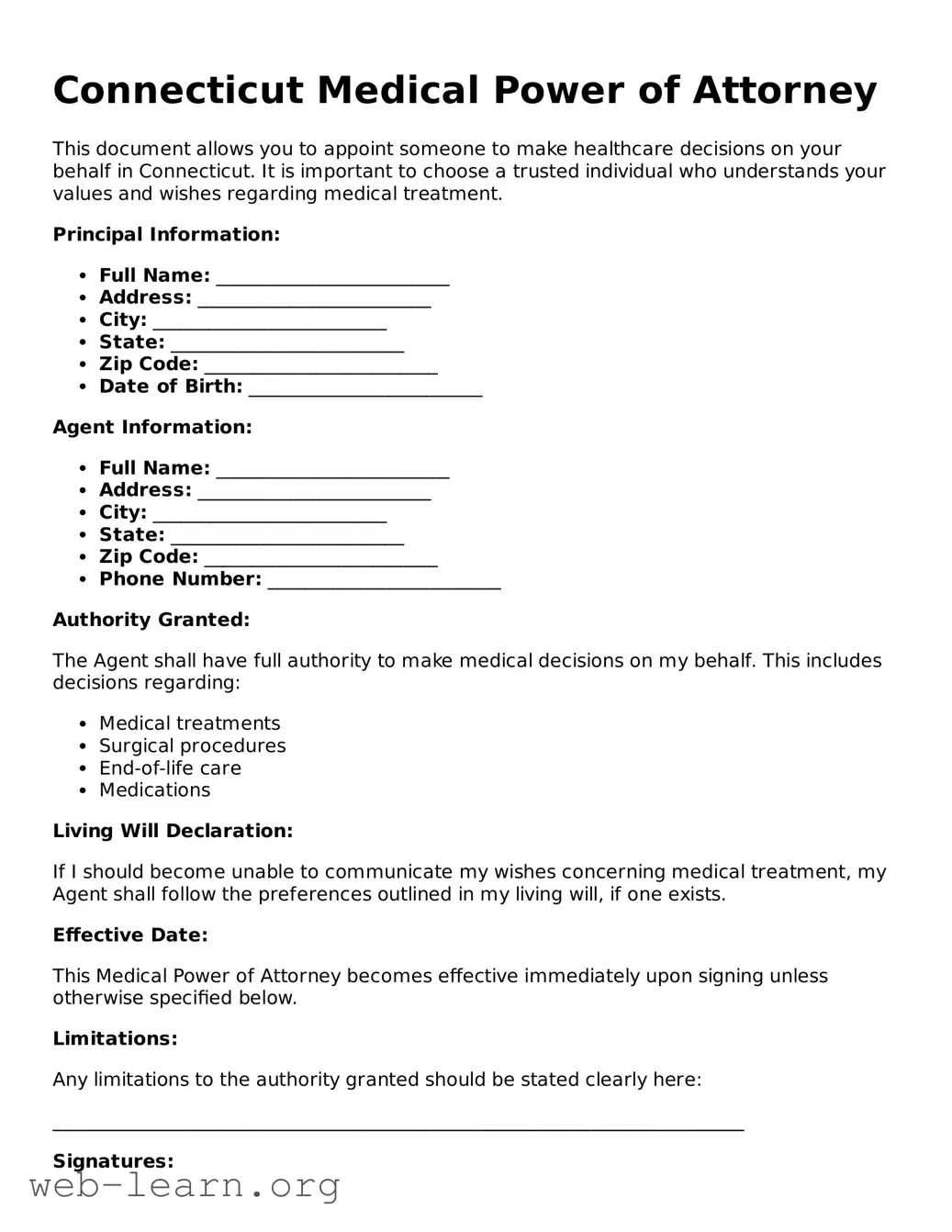Connecticut Medical Power of Attorney
This document allows you to appoint someone to make healthcare decisions on your behalf in Connecticut. It is important to choose a trusted individual who understands your values and wishes regarding medical treatment.
Principal Information:
- Full Name: _________________________
- Address: _________________________
- City: _________________________
- State: _________________________
- Zip Code: _________________________
- Date of Birth: _________________________
Agent Information:
- Full Name: _________________________
- Address: _________________________
- City: _________________________
- State: _________________________
- Zip Code: _________________________
- Phone Number: _________________________
Authority Granted:
The Agent shall have full authority to make medical decisions on my behalf. This includes decisions regarding:
- Medical treatments
- Surgical procedures
- End-of-life care
- Medications
Living Will Declaration:
If I should become unable to communicate my wishes concerning medical treatment, my Agent shall follow the preferences outlined in my living will, if one exists.
Effective Date:
This Medical Power of Attorney becomes effective immediately upon signing unless otherwise specified below.
Limitations:
Any limitations to the authority granted should be stated clearly here:
__________________________________________________________________________
Signatures:
I, the undersigned, hereby appoint the individual named above as my Agent to make healthcare decisions on my behalf as stated in this document.
Principal Signature: _________________________ Date: _______________
Witness Signature: _________________________ Date: _______________
Witness Signature: _________________________ Date: _______________
This form is intended to comply with Connecticut state law regarding medical powers of attorney.
